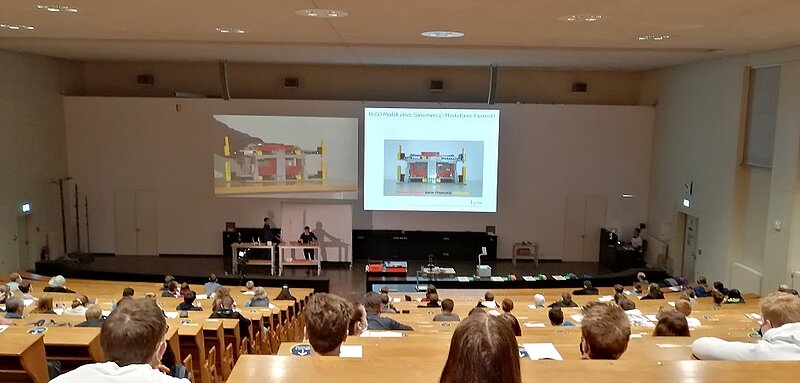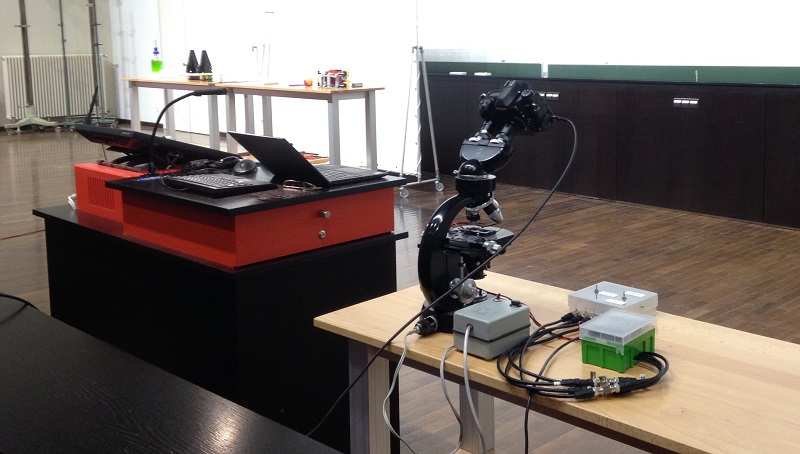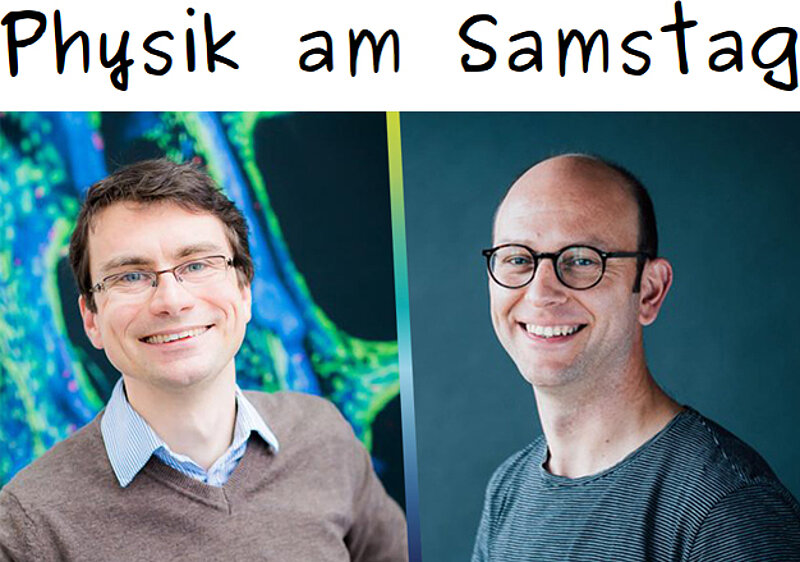With the topic “Physics of Life: How Nano-Motors Bring Motion to Life”, Prof. Benjamin Friedrich (Physics of Life/cfaed) and Dr. Veikko Geyer (Diez Group, B CUBE – Center for Molecular Bioengineering) presented their research to local school students in the traditional lecture series “Saturday Physics” on November 13, 2021. The Faculty of Physics has organized this lecture series for the past 21 years.
Life is movement - and this has a lot to do with physics. For example, how do tiny little bacteria manage to swim in our intestines? How does movement come about at all, for example when we tense the muscles in our arm? Nowadays we know that tiny nano-machines, so-called molecular motors, which are found in every cell of an organism, are significantly involved.
In their lecture, Prof. Benjamin Friedrich and Dr. Veikko Geyer showed how nano-motors function and generate power when ten thousands of motors work together, e.g. so that primordial plants can swim to the light. When new life develops, motors help to give an embryo its shape. To demonstrate how these molecular motors work, Prof. Benjamin Friedrich and Dr. Veikko Geyer presented for example a moving sarcomere built from LEGO and a joystick to control the swimming of Chlamydomonas alga by light. The two researchers highlighted how physics contributes to our understanding of biological phenomena.
The “Saturday Physics” lecture series is aimed at local Dresden school students and attracts between 500 and 600 visitors every year. It typically takes place on five Saturdays in November and December. Due to strict corona rules, the series currently takes place in a limited format, with only 200 participants in the traditional lecture hall.
For more information, visit the event series website.


